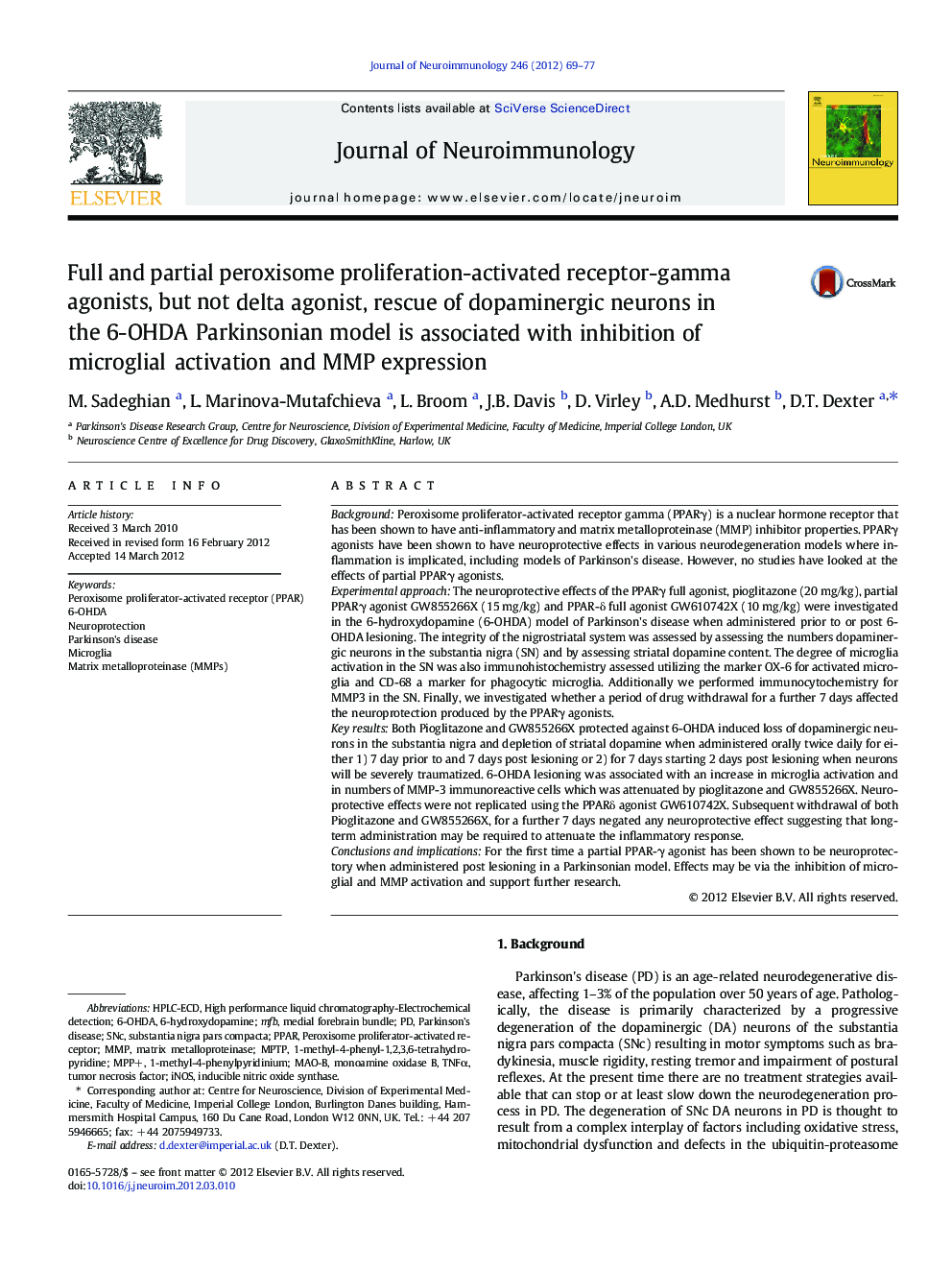| کد مقاله | کد نشریه | سال انتشار | مقاله انگلیسی | نسخه تمام متن |
|---|---|---|---|---|
| 3064368 | 1580428 | 2012 | 9 صفحه PDF | دانلود رایگان |

BackgroundPeroxisome proliferator-activated receptor gamma (PPARγ) is a nuclear hormone receptor that has been shown to have anti-inflammatory and matrix metalloproteinase (MMP) inhibitor properties. PPARγ agonists have been shown to have neuroprotective effects in various neurodegeneration models where inflammation is implicated, including models of Parkinson's disease. However, no studies have looked at the effects of partial PPARγ agonists.Experimental approachThe neuroprotective effects of the PPARγ full agonist, pioglitazone (20 mg/kg), partial PPARγ agonist GW855266X (15 mg/kg) and PPAR-δ full agonist GW610742X (10 mg/kg) were investigated in the 6-hydroxydopamine (6-OHDA) model of Parkinson's disease when administered prior to or post 6-OHDA lesioning. The integrity of the nigrostriatal system was assessed by assessing the numbers dopaminergic neurons in the substantia nigra (SN) and by assessing striatal dopamine content. The degree of microglia activation in the SN was also immunohistochemistry assessed utilizing the marker OX-6 for activated microglia and CD-68 a marker for phagocytic microglia. Additionally we performed immunocytochemistry for MMP3 in the SN. Finally, we investigated whether a period of drug withdrawal for a further 7 days affected the neuroprotection produced by the PPARγ agonists.Key resultsBoth Pioglitazone and GW855266X protected against 6-OHDA induced loss of dopaminergic neurons in the substantia nigra and depletion of striatal dopamine when administered orally twice daily for either 1) 7 day prior to and 7 days post lesioning or 2) for 7 days starting 2 days post lesioning when neurons will be severely traumatized. 6-OHDA lesioning was associated with an increase in microglia activation and in numbers of MMP-3 immunoreactive cells which was attenuated by pioglitazone and GW855266X. Neuroprotective effects were not replicated using the PPARδ agonist GW610742X. Subsequent withdrawal of both Pioglitazone and GW855266X, for a further 7 days negated any neuroprotective effect suggesting that long-term administration may be required to attenuate the inflammatory response.Conclusions and implicationsFor the first time a partial PPAR-γ agonist has been shown to be neuroprotectory when administered post lesioning in a Parkinsonian model. Effects may be via the inhibition of microglial and MMP activation and support further research.
Journal: Journal of Neuroimmunology - Volume 246, Issues 1–2, 15 May 2012, Pages 69–77